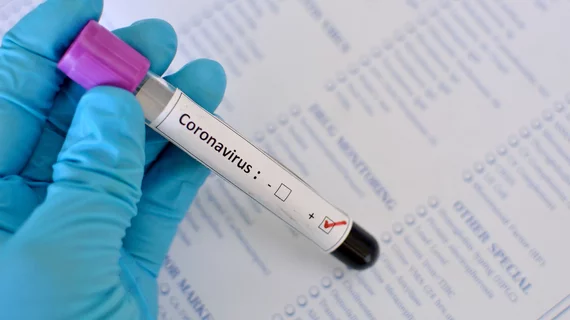Coronavirus is a global pandemic, says World Health Organization
The World Health Organization has declared the new coronavirus, COVID-19, a pandemic and urged countries to take serious steps to mitigate further spread of the disease.
At the time of WHO’s announcement on March 11, more than 118,000 cases in 114 countries were confirmed, with 4,291 deaths. The virus is characterized by fever, cough and shortness of breath.
“Pandemic is not a word to use lightly or carelessly,” WHO Director-General Tedros Adhanom Ghebreyesus said in a briefing Wednesday. “It is a word that, if misused, can cause unreasonable fear, or unjustified acceptance that the fight is over, leading to unnecessary suffering and death.”
WHO also noted it is the first time a pandemic has been declared over a coronavirus. The declaration does not change the organization's assessment of the virus' threat or the actions WHO is taking––or what countries should do.
“We have never before seen a pandemic sparked by a coronavirus,” Ghebreyesus said. “This is the first pandemic caused by a coronavirus.”
However, the organization did note they’ve also never seen a pandemic that can be contained, as COVID-19 can. Of the cases reported, more than 90% are contained within four countries. China, where the disease originated, and Republic of Korea have also seen declining epidemics, WHO stated.
Countries are urged to “detect, test, treat, isolate, trace, and mobilize their people in the response” to prevent a few cases from spreading to clusters and furthering community transmission, Ghebreyesus said.
The announcement comes as CMS has been issuing guidance for specific healthcare settings, including hospice, home health care, nursing homes, emergency room departments, Medicare Part D and Medicare Advantage. CMS is pushing telehealth visits as well to reduce risk to healthcare providers and other patients in healthcare settings. The agency also sent out a memorandum to state survey agencies (SAs) that inspect nursing homes and other healthcare facilities to wear an expanded list of protective facemasks.
Healthcare workers are also allowed to use certain industrial respirators in healthcare settings when dealing with COVID-19 after the FDA approved a CDC request for an emergency use authorization.
“CMS is working in lockstep with the CDC, FDA, and other Trump Administration partners to protect both patients and the dedicated healthcare workers who are battling the spread of Coronavirus,” CMS Administrator Seema Verma said in a statement March 10. “Today we provided practical information to state inspectors and healthcare facilities on the range of facemasks that can be temporarily used. CMS has been rapidly adapting our guidance to strengthen our nation’s defense against Coronavirus, and today’s action is no exception. We’re working to make sure the healthcare system has the equipment it needs to keep patients and healthcare workers safe.”

